' I am going, 0 my people, On a long and distant journey; Many moons and many winters Will have come, and will have vanished, Ere I come again to see you. But my guests I leave behind me; Listen to their words of wisdom, Listen to the truth they tell you, For the Master of Life has sent them From the land of light and morning !'
On the shore stood Hiawatha, Turned and waved his hand at parting; On the clear and luminous water Launched his birch canoe for sailing, From the pebbles of the margin Shoved it forth into the water; Whispered to it, ' Westward! westward t And with speed it darted forward.
And the evening sun descending Set the clouds on fire with redness, Burned the broad sky, like a prairie, Left upon the level water One long track and trail of splendor, Down whose stream, as down a river, Westward, westward Hiawatha Sailed into the fiery sunset, Sailed into the purple vapors, Sailed into the dusk of evening.
And the people from the margin Watched him floating, rising, sinking, Till the birch canoe seemed lifted High into that sea of splendor, Till it sank into the vapors Like the new moon slowly, slowly Sinking in the purple distance.
And they said, ' Farewell forever! n Said, ' Farewell, 0 Hiawatha! ' And the forests, dark and lonely,
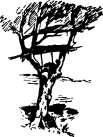
Moved through all their depths of darkness. Sighed, ' Farewell, 0 Hiawatha ! ' And the waves upon the margin Rising, rippling on the pebbles, Sobbed, ' Farewell, O Hiawatha !' And the heron, the Shuh-shuh-gah, From her haunts among the fen-lands, Screamed, ' Farewell, 0 Hiawatha 1'
Thus departed Hiawatha, Hiawatha the Beloved, In the glory of the sunset, In the purple mists of evening, To the regions of the home-wind, Of the Northwest-Wind, Keewaydin, To the Islands of the Blessed, To the kingdom of Ponemah, To the land of the Hereafter!
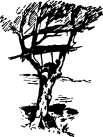
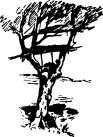
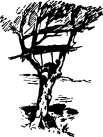
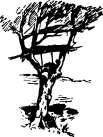
Tms Indian Edda – if I may so call it – is founded on a tradition, prevalent among the North American Indians, of a personage of miraculous birth, who was sent among them to clear their rivers, forests, and fishing-grounds, and to teach them the arts of peace. He was known among different tribes by the several names of Michabou, Chiabo, Manabozo, Tarenya-wagon, and Hiawatha. Mr. Schoolcraft gives an account of him in his Algic Researches, vol. i. p. 134 ; and in his History, Condition, and Prospects of the Indian Tribes of the United States, Part III. p. 314, may be found the Iroquois form of the tradition, derived from the verbal narrations of an Onondaga chief.
THESONQ OF HIAWATHA
Into this old tradition I have woven other carious Indian legends, drawn chiefly from the various and valuable writings of Mr. Schoolcraft, to whom the literary world is greatly indebted for his indefatigable zeal in rescuing from oblivion so much of the legendary lore of the Indians.
The scene of the poem is among the Ojibways on the southern shore of Lake Superior, in the region between the Pictured Bocks and the Grand Sable.
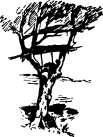
VOCABULARY
Adjidan'mo, the red squirrel*
Ah dee k', the reindeer.
Ahkose' win, fever.
Ahmeek', the beaver.
Algon'quin, Ojibway.
Annemee'kee, tlie thunder*
Apuk'wa, a bulrush.
Baim-wa'wa, the sound of the thunder.
Bemah'gut, the grapevine.
Be'na, the pheasant.
Big-Sea-Water, Lake Superior.
Bukada'win, famine.
Cheemaun', a birch canoe.
Chetowaik', the plover.
Chibia'bos, a musician; friend of Hiawatha ; ruler in the Land
of Spirits. Dahin'da, the bullfrog.
Dush-kwo-ne'she, or Kwo-ne'she, the dragon-fly. Esa, shame upon you. Ewa-yea', lullaby. Ghee'zis, the sun.
Gitche Gu'mee, the Big-Sea-Water. Lake Superior. Gitche Man'ito, the Great Spirit, the Master of Life. Gushkewau', the darkness. Hiawa'tha, the Wise Man. the Teacher; son of Mudjekeewis. the
West-Wind, and Wenonah. daughter ofNokomis. Ia'^oo, a great boaster and story-teller. Inin'ewug, men, or pawns in the Game of the Bowl. Ishkoodah', fire ; a comet. Jee'bi, a ghost, a spirit. Joss'akeed, a prophet.
Kabibonok'ka, the North-Wind.
Kagh, the hedgehog,
Ka'go, do not.
Kahgahgee', the raven.
Kaw, no.
Kaween', no indeed.
Kayoshk', the sea-gull.
Kee'go, a fish.
Keewa/din, the Northwest-Wind, the Home-Wind.
Kena'beek, a serpent.
Keneu', the great war-eagle.
Keno'zha, the pickerel.
Ko'ko-koho, the owl.
Kuntasoo', the Game of Plum-stones.
Kwa'sind, the Strong Man.
Kwo-ne'she, or Duah-kwo-ne'she, the dragon-fly*
Mahnahbe'zee, the swan.
Mahng, the loon.
Mahn-go-tay'see, loon-hearted brave.
Mahnomo'nee, wild rice.
Ma'ma, the woodpecker.
Maskeno'zha, the pike.
Me'da, a medicine-man.
Meenah'ga, the blueberry.
Megissog'won, the great Pearl-Feather a magician and the Manito
of Wealth. Meshinau'wa, a pipe-bearer. Minjekah'wun, Hiawatha's mittens. Minneha'ha, Laughing Water; a waterfall on a stream running
into the Mississippi, between Fort SneJling and the Falls of 8t.
Anthony. Minnehaha, Laughing Water; wife of Hiawatha. Minne-wa'wa, a pleasant sound, as of the wind in the trees* Mishe-Mo'kwa, the Great Bear. Mtshe-Nah'ma, the Great Sturgeon. Miakodeed', the Spring Beauty, the Claytonia Virginica. Monda min, Indian Corn. Moon of Bright Nights, April. Moon of Leaves, May. Moon of

